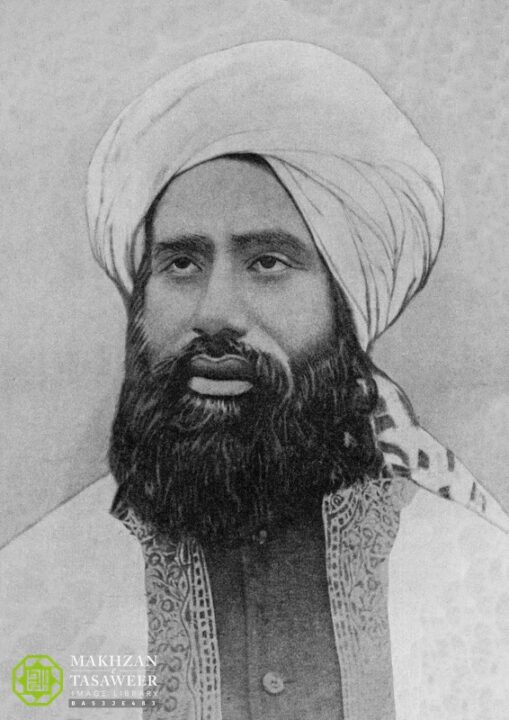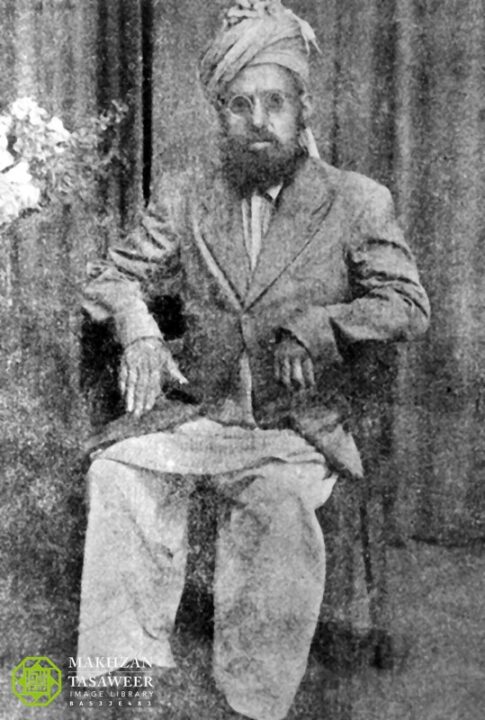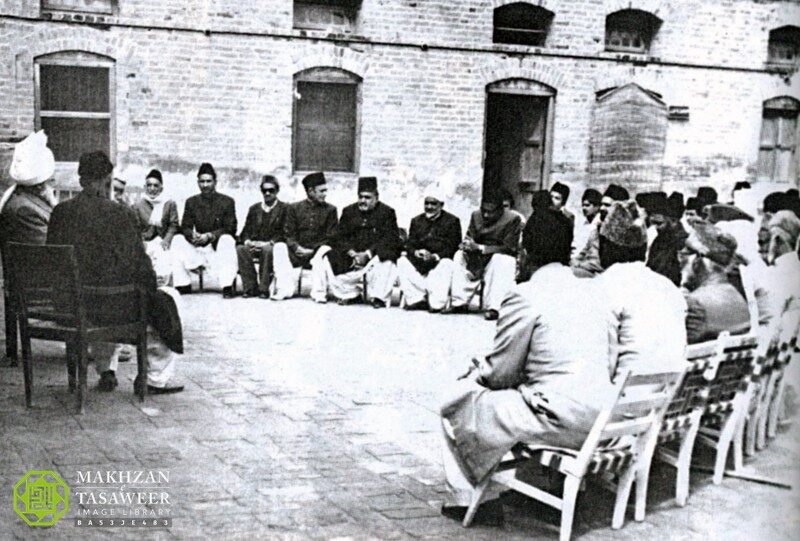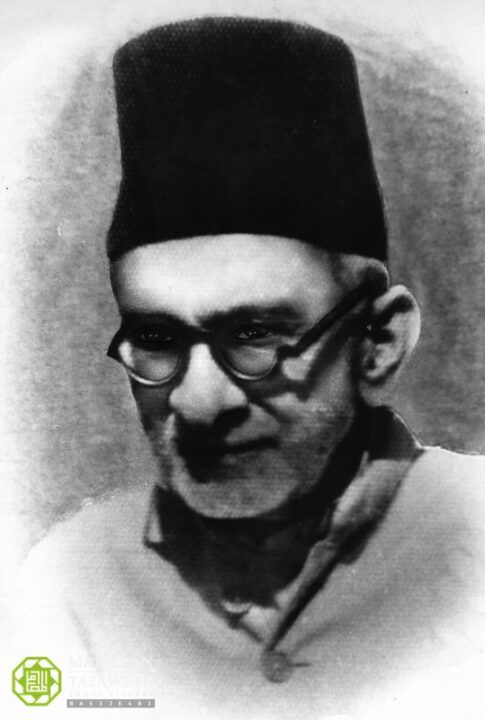21 January 1909: Hazrat Khalifatul Masih Ira asked Jamaat members to pay special attention to helping orphans, people in need and students with insufficient resources.
A study of the circumstances of the life of Hazrat Khalifatul Masih Ira shows that wherever he was, he remained a source of comfort for orphans, people in need and students. He made great efforts to aid them in matters they needed help in.

21 January 1910: On this date, a Friday Sermon was delivered from Masjid Aqsa in Qadian where the presence of women was also recorded. Perhaps it was the first time that arrangements could be made for Ahmadi ladies to offer prayer in congregation at the mosque. Arrangements for purdah were made towards the rear of the mosque’s main hall. On this day, Hazrat Amma Jan, Nusrat Jehan Begumra also attended.
22 January 1938: Hazrat Master Abdur Rahmanra was imprisoned and fined after he wrote and published a pamphlet presenting some theological and historical views of the Promised Messiahas.
Hazrat Master Abdur Rahmanra heard this sentence with great joy and delight, so much so that when he was handcuffed, he kissed the handcuffs. He spent some time in Gurdaspur’s jail and was later shifted to Mianwali. He was set free on 22 March of that same year after paying a fine.
Sikh and Muslim newspapers were among those that questioned the astonishing and harsh decision to punish Hazrat Master Abdur Rahmanra in this way. (Tarikh-e-Ahmadiyyat, Vol. 7, p. 539)

22 January 1982: Hazrat Khalifatul Masih IIIrh urged the youth of the Jamaat who had achieved either BA, BSc, MA or MSc to dedicate their lives for the cause of Islam. He said that young people should appreciate the reality of their lives and should recognise the greatness of this sacrifice. Huzoorrh further stated that even if the world gave a million rupees a month, such an honour would still not be established as much as the honour that could be earned by recognising the spirit of true devotion in the way of God and being blessed and showered upon with His love.

23 January 1921: Hazrat Musleh-e-Maudra devised a very unique and beneficial plan to foster interfaith harmony and help eliminate prevailing inter-religious conflicts in India. Huzoorra proposed that an exchange be set up between Hindu and Ahmadi students. Huzoorra graciously invited 20 Hindus to study the Holy Quran in Qadian free of charge. In return, Huzoorra said that Hindu faith leaders should accommodate at least two Ahmadi students who should be taught Sanskrit and the Vedas. Huzoorra said that the Jamaat would bear all the expenses of this project.
Inspired by the moderation in this proposal of Hazrat Musleh-e-Maudra, a Hindu student, who was studying in a renowned Hindu institution of Kangra, came to Qadian. After receiving his education and falling in love with Islam, he accepted Islam. His name was changed to Mahashah Muhammad Omar. (Tarikh-e-Ahmadiyyat, Vol. 4, p. 266)
For more details on Mahashah Muhammad Omar, please visit: www.ahmadipedia.org/content/personality/402
23 January 1922: Hazrat Hakim Fazl-ur-Rahman Sahib set off for West Africa for tabligh. Below is a summary of the instructions Hazrat Musleh-e-Maudra gave him in person and in writing:
1. Learn the language there
2. Work with love and wisdom
3. Those nations (where he was being sent) were very respectful of their chiefs. Therefore, when dealing with them, nothing should be said that may make them feel bad. When advising them, it should be done so separately
4. Teach them about religion gradually according to their mental ability
5. Always be active
6. Do not keep an eye on what others are doing while doing your work
7. Take special care of ethics and treat the authorities with proper etiquette
8. Africans have the impression that the world despises them; however, one must interact with them with great love and care
9) Always consider great care in habits, clothing, and food
(Tarikh-e-Ahmadiyyat, Vol. 4, p. 292)
24 January 1929: Hazrat Babu Roshan Dinra of Sialkot, a companion of the Promised Messiahas, passed away. He had the privilege of serving in Sialkot Jamaat as the secretary of talim and tarbiyat (education and edification). Hazrat Musleh-e-Maudra led the funeral prayers of three companions including Hazrat Babu Roshan Dinra on 25 January and mentioned the sincerity and devotion of the early Companionsra of the Promised Messiahas. Huzoorra said:
“Today, I shall offer three funeral prayers after namaz. In my estimation, never before has there been such a coincidence that the funeral of three of early servants and pioneer companions of the Promised Messiah, on whom be peace, was offered at the same time […]
“Babu Roshan Din Sahib was from Sialkot, who also served as a station master in Batala. It is unknown at this time when he did bai‘at. A friend has recently said that he did it in 1893. He [Hazrat Babu Roshan Dinra] also had a special relationship with the Promised Messiah, on whom be peace. Aside from the fact that he was a companion of the Promised Messiahas, a reason that his departure from this world is sad is that he was extremely zealous and passionate in his service to faith.
“After the demise of Mir Hamid Shah Sahib, the loss to Jamaat Sialkot was compensated to a great extent because of him [Hazrat Babu Roshan Dinra]. He worked very hard to establish a girls’ school there; and Lajna Imaillah Sialkot has become well established due to his efforts and has achieved such a status that Lajna of other places should imitate this. (Tarikh-e-Ahmadiyyat, Vol. 5, p. 161 & Al Fazl, 29 January 1929)
25 January 1973: Hazrat Sahibzada Mirza Aziz Ahmadra, grandson and companion of the Promised Messiahas, passed away. He did bai‘at in 1905. Before his demise, he served as the nazir-e-ala in Rabwah.
For more details, see: www.ahmadipedia.org/content/personality/272

25 January 1974: Hazrat Mirza Nasir Ahmad, Khalifatul Masih IIIrh urged English-speaking scholars, doctors, teachers and professors of the Jamaat – who were approaching the age of retirement – to dedicate themselves for the cause of Islam. Huzoorrh said that the Jamaat was in need of those men who, although had not studied in Jamia Ahmadiyya, had been able to attain religious knowledge. Huzoorrh said that their hearts should be pure, they should have a close bond with Allah and they should be courageous. Huzoorrh said that such people should dedicate their lives in the service of religion so that they could be sent to various countries to propagate the message of Islam. (Khutbaat-e-Nasir, Vol. 5, pp. 396-397)
26 January 1937: Hazrat Munshi Abdur Rahmanra of Kapurthala, a companion of the Promised Messiahas, passed away. He was around 98 years old at the time of his demise. He was among those fortunate and blessed souls who swore allegiance in March 1889.
Hazrat Munshi Abdur Rahmanra was first the deputy tehsildar in the finance department and he was soon transferred to the defence department and was made the secretary to the then commander-in-chief. (Tarikh-e-Ahmadiyyat, Vol. 7, p. 434)
27 January 1944: Hazrat Musleh-e-Maudra arrived back in Qadian from Lahore. The return to Qadian was momentous as in Lahore, he had been informed by Allah through a vision that he was in fact the Musleh-e-Maudra (Promised Son).
According to Al Fazl (29 January 1944), on this auspicious and historic occasion, many friends and members of the Jamaat were present on Ahmadiyya Chowk of Qadian to welcome Huzoorra.
27 January 1954: A copy of the Dutch translation of the Holy Quran was presented to Ghulam Muhammad, Governor-General of Pakistan. This valued gift was from Hazrat Musleh-e-Maudra and delivered by a special delegation of Jamaat members.
The delegation consisted of Sahibzada Mirza Mubarak Ahmad Sahib, Hazrat Malik Ghulam Faridra, Syed Shah Muhammad Sahib and Maulvi Abdul Maalik Khan Sahib.
It would not be out of place here to mention that when all Muslim sects and political groups were bent on proving Jamaat-e-Ahmadiyya as non-Muslim, the Jamaat had completed translations of the Holy Quran in various languages and was presenting these translations to the president of Indonesia, governor-general of Pakistan, Justice Munir etc. For further details, see Tarikh-e-Ahmadiyyat, volume 16, page 413.

